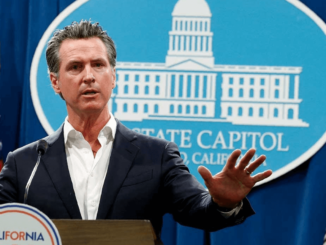
In the largest U.S. market for rideshare companies, Uber and Lyft are facing a major hinderance to their gig worker operations. California Judge Ethan Schulman ruled that Uber and Lyft could no longer classify drivers as independent contractors on Monday.
The injunction comes as a lawsuit by the state of California challenging Uber and Lyft declares that the companies are abusing their authority by denying that their drivers are employees. By doing so, certain benefits are prohibited from the drivers, such as unemployment, minimum wage and workers’ compensation.
Enacted on January 1, the new state labor law, AB5, enforced requirements for gig worker jobs that changed the way the gig workers are classified. For instance, the gig worker must be free from the control of the company to make independent decisions regarding the position. The gig worker must also be able to run their business independent of the company and perform work that is not the core of the organization’s business operations.
Uber tried to maintain the independent contractor classification for their drivers by implementing more flexibility in drivers’ options to accept or reject rides, create their own rates and by revealing more information about trips.
Gig worker companies are joining efforts to mitigate the changes enforced by AB5 through legislation, as well. Uber, Lyft, DoorDash and InstaCart have invested more than $100 million to put a measure in place on the 2020 elections ballot called the Protect App-Based Drivers & Services Act. The Act would maintain the status of driver classification as independent contractors.
The tech companies defend their stance of wanting to maintain independent contractor jobs because if drivers are categorized as employees, then they will have less flexibility with their work schedules and cause a higher cost to trickle down to the customer.
However, drivers protesting the treatment of the rideshare companies believe that straddling the fence between independent contractor and employee liberties or restraints causes confusion that leaves drivers with the short end of the stick.
“For years, these companies have refused to pay drivers fairly or treat us with respect,” Edan Alva, Gig Workers Rising organizer, said in a statement. “After working 80 hour weeks, sleeping in our cars and surviving on poverty wages, drivers organized and won support for AB5 from both the public and lawmakers. Now, instead of obeying the law, Uber, Lyft and Doordash want to spend $90 million to avoid accountability – all while claiming it will ‘protect’ drivers. Uber and Lyft were nowhere to be found for the past many years when drivers like me needed healthcare or basic labor protections.”
Judge Schulman is giving Uber and Lyft 10 days to appeal his injunction, an opportunity the companies plan to take full advantage of in an effort to delay implementation of the order.



